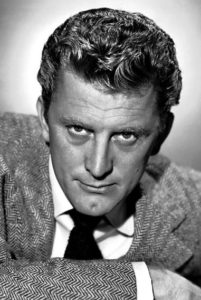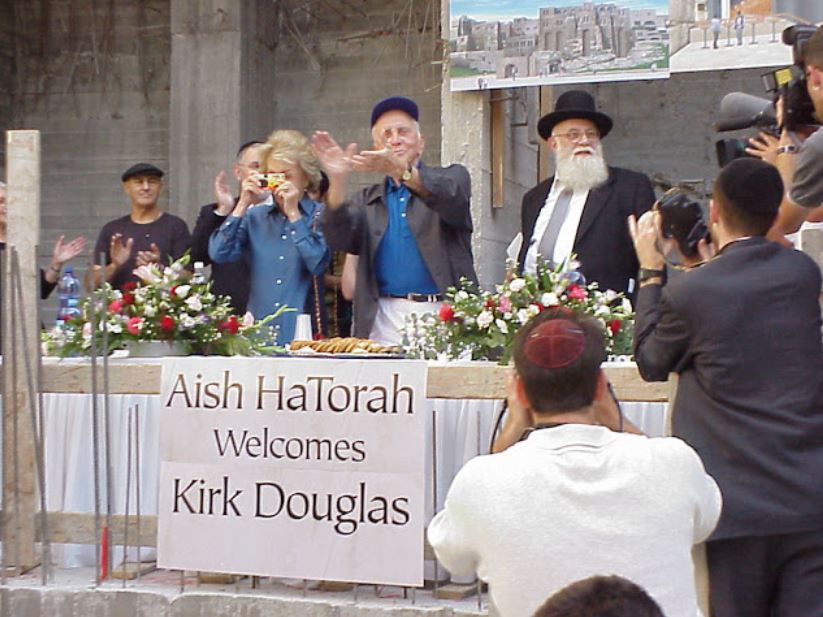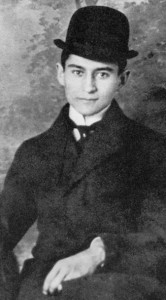Highest-Ranking Jew in the Continental Army
 Mordechai Sheftall (1735-1797) was born in the new colony of Savannah, Georgia to Jewish immigrants from England that had arrived two years earlier aboard a vessel carrying 36 Sephardic and 8 Ashkenazi Jews. The same year he was born, his parents cofounded North America’s third oldest synagogue, Kahal Kadosh Mickve Israel of Savannah (the first is Shearith Israel of New York, and the second the Touro Synagogue of Newport, Rhode Island). Seven years later, Spanish troops invaded Georgia, causing the Sephardic families to flee in fear of the Spanish Inquisition. Only the two Ashkenazi families remained, the Sheftalls being one of them. Mordechai Sheftall received a strong Jewish education from his father, who ordered a set of tefillin and Jewish books for his bar mitzvah from England. He even sent a letter when the precious shipment was delayed—which happens to be the earliest-known historical mention of a bar mitzvah in the Americas! At age 17, Sheftall went into the deerskin business and quickly made a small fortune, soon buying 50 acres of his own in Savannah. By the time he married at age 26, he operated a 2000-acre cattle ranch and a tanning facility. The Mickve Israel congregation ran services from a room in his house. Sheftall was also a philanthropist, and a major contributor to the Union Society and the Bethesda orphanage. In 1765, the British imposed the hugely unpopular Stamp Act. Like many colonists, Sheftall strongly opposed excessive British taxation, and became chairman of Savannah’s Parochial Committee of American patriots. When the Revolutionary War broke out, Sheftall immediately volunteered to fight, and in 1777 became the commissary-general of Georgia’s troops. He went on to attain the rank of colonel, making him the highest-ranking Jew in the Continental Army. Sheftall was captured during the First Battle of Savannah in 1778, yet continued to arrange major funds to the American cause from the prisoner-of-war ship he was being held in. The British would purposely give him pork, which he refused to eat, and even greased his cutlery with pork fat, which he refused to use. He was only freed in a prisoner exchange two years later. Having lost everything in the Revolutionary War, Sheftall moved to Philadelphia in 1781 to try a new business. During his brief time there, he also helped build Philadelphia’s historic Mikveh Israel synagogue. Sheftall returned to Savannah to work at its port as Georgia’s official Inspector of Tanned Leather. In 1790, he became president of Savannah’s Mickve Israel synagogue. That same year, George Washington wrote a letter to the congregation (the first ever by a president to a Jewish community) where he wrote: “May the same wonder-working Deity, who long since delivering the Hebrews from their Egyptian Oppressors planted them in the promised land – whose providential agency has lately been conspicuous in establishing these United States as an independent nation – still continue to water them with the dews of heaven…” Like fellow Revolutionary hero (and the very first Jew of the Week) Haym Solomon, the vital loans Sheftall provided to the nascent US government were never repaid. Sheftall was buried in Savannah’s first Jewish cemetery, which he had himself established years earlier.
Mordechai Sheftall (1735-1797) was born in the new colony of Savannah, Georgia to Jewish immigrants from England that had arrived two years earlier aboard a vessel carrying 36 Sephardic and 8 Ashkenazi Jews. The same year he was born, his parents cofounded North America’s third oldest synagogue, Kahal Kadosh Mickve Israel of Savannah (the first is Shearith Israel of New York, and the second the Touro Synagogue of Newport, Rhode Island). Seven years later, Spanish troops invaded Georgia, causing the Sephardic families to flee in fear of the Spanish Inquisition. Only the two Ashkenazi families remained, the Sheftalls being one of them. Mordechai Sheftall received a strong Jewish education from his father, who ordered a set of tefillin and Jewish books for his bar mitzvah from England. He even sent a letter when the precious shipment was delayed—which happens to be the earliest-known historical mention of a bar mitzvah in the Americas! At age 17, Sheftall went into the deerskin business and quickly made a small fortune, soon buying 50 acres of his own in Savannah. By the time he married at age 26, he operated a 2000-acre cattle ranch and a tanning facility. The Mickve Israel congregation ran services from a room in his house. Sheftall was also a philanthropist, and a major contributor to the Union Society and the Bethesda orphanage. In 1765, the British imposed the hugely unpopular Stamp Act. Like many colonists, Sheftall strongly opposed excessive British taxation, and became chairman of Savannah’s Parochial Committee of American patriots. When the Revolutionary War broke out, Sheftall immediately volunteered to fight, and in 1777 became the commissary-general of Georgia’s troops. He went on to attain the rank of colonel, making him the highest-ranking Jew in the Continental Army. Sheftall was captured during the First Battle of Savannah in 1778, yet continued to arrange major funds to the American cause from the prisoner-of-war ship he was being held in. The British would purposely give him pork, which he refused to eat, and even greased his cutlery with pork fat, which he refused to use. He was only freed in a prisoner exchange two years later. Having lost everything in the Revolutionary War, Sheftall moved to Philadelphia in 1781 to try a new business. During his brief time there, he also helped build Philadelphia’s historic Mikveh Israel synagogue. Sheftall returned to Savannah to work at its port as Georgia’s official Inspector of Tanned Leather. In 1790, he became president of Savannah’s Mickve Israel synagogue. That same year, George Washington wrote a letter to the congregation (the first ever by a president to a Jewish community) where he wrote: “May the same wonder-working Deity, who long since delivering the Hebrews from their Egyptian Oppressors planted them in the promised land – whose providential agency has lately been conspicuous in establishing these United States as an independent nation – still continue to water them with the dews of heaven…” Like fellow Revolutionary hero (and the very first Jew of the Week) Haym Solomon, the vital loans Sheftall provided to the nascent US government were never repaid. Sheftall was buried in Savannah’s first Jewish cemetery, which he had himself established years earlier.
Words of the Week
May the children of the stock of Abraham who dwell in this land continue to merit and enjoy the good will of the other inhabitants, while every one shall sit in safety under his own vine and fig tree and there shall be none to make him afraid.
– George Washington, first president of the United States, to the Touro Synagogue in 1790



